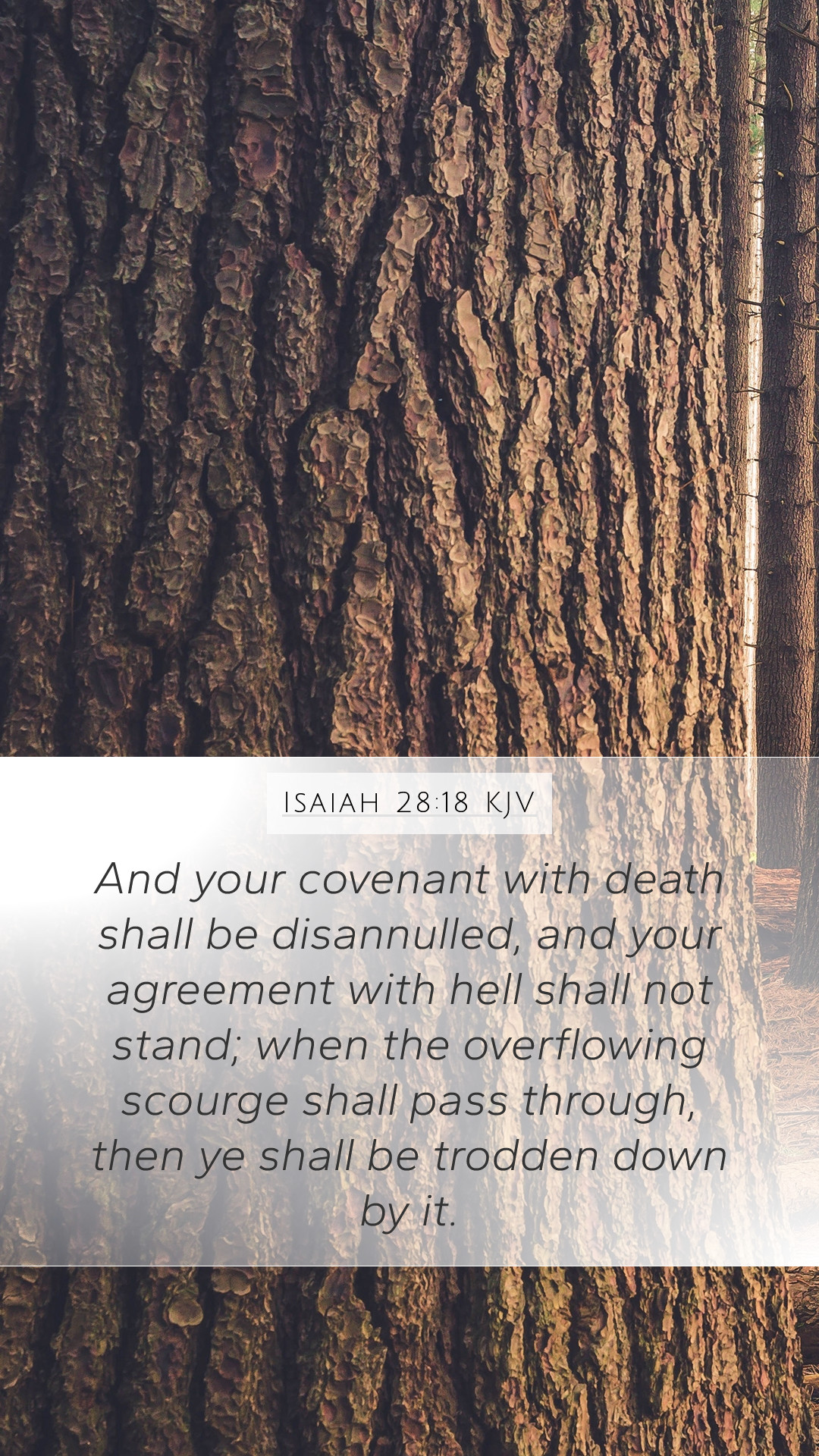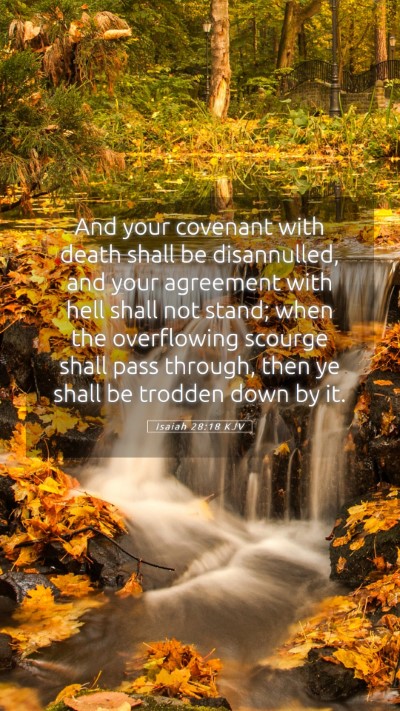Understanding Isaiah 28:18: A Comprehensive Bible Verse Explanation
Isaiah 28:18 says, "And your covenant with death shall be disannulled, and your agreement with hell shall not stand; when the overflowing scourge shall pass through, then ye shall be trodden down by it." This verse speaks to the assurance of God’s judgment on the covenant that the people of Israel had made, placing their trust in their own security rather than in God.
The interpretive approach to Isaiah 28:18 allows us to explore deep Bible study insights and enhanced understanding of Scripture. Renowned public domain commentaries from Matthew Henry, Albert Barnes, and Adam Clarke provide a rich background for analyzing this challenging verse.
Bible Verse Meanings
The essence of Isaiah 28:18 can be unpacked through various lenses, with each commentator offering a unique perspective on its implications for both historical and modern contexts.
1. Matthew Henry's Commentary
Matthew Henry emphasizes the futility of relying on false security. He interprets "your covenant with death" as metaphorical for the people's misplaced trust, showing that they believe they can evade the consequences of their actions. Henry insists that ignoring divine warnings ultimately leads to despair and judgment.
2. Albert Barnes' Commentary
Albert Barnes expands upon the imagery of covenant and agreement in Isaiah 28:18. He clarifies that the "overflowing scourge" refers to the Assyrian invasion. Barnes asserts that the agreement with "hell" illustrates the people's reliance on alliances and foreign powers instead of turning to God for protection. This commentary underscores the critical importance of seeking divine guidance in times of crisis.
3. Adam Clarke's Commentary
Adam Clarke provides an analytical view of the historical context behind Isaiah 28:18. Clarke explores the conditions of the Israelite society at the time, highlighting their moral decay and insistence on self-reliance. He explains the "covenant with death" as a metaphor for their erroneous belief that they could avoid judgment through their deceitful alliances.
Insights into Biblical Exegesis
The complexity of Isaiah 28:18 requires diligent scriptural analysis. This process can lead to profound insights about the dynamics between divine judgment and human actions. The interplay of themes such as covenant, judgment, and reliance on God are crucial for understanding the overarching narrative of the Book of Isaiah.
Key Themes
- Divine Judgment: This theme is central to understanding how God responds to unfaithfulness.
- Covenants: The verse explores the nature of agreements made by humanity, revealing their inadequacy without God's endorsement.
- False Security: The misleading notion that worldly alliances can offer protection from divine wrath.
Application of the Verse in Daily Life
Applying the principles found in Isaiah 28:18 involves recognizing reliance on God over worldly assurances. It prompts individuals to evaluate their trust in earthly systems versus spiritual truths. This understanding can be pivotal for personal growth and spiritual maturity.
Connecting with Community Bible Study Groups
Engaging with Bible study groups can further enrich the meaning of this verse. Members can collaboratively explore these biblical themes and analyze similar scriptures to gain deeper understanding and insights.
Related Cross References
- Isaiah 28:15: Discusses making a covenant with death.
- Jeremiah 8:11: Addresses the false hope among the people.
- Matthew 7:24-27: Contrasts the wise and foolish builders, emphasizing the importance of a solid foundation.
Conclusion
Isaiah 28:18 serves as a profound reminder of the precarious nature of human agreements made outside of God's will. Through careful studies and commentaries, this verse illustrates the necessity of faith in God’s promises rather than in human construct. Synthesizing commentaries will not only enhance Bible verse understanding but also empower believers to draw practical applications for today’s world.


